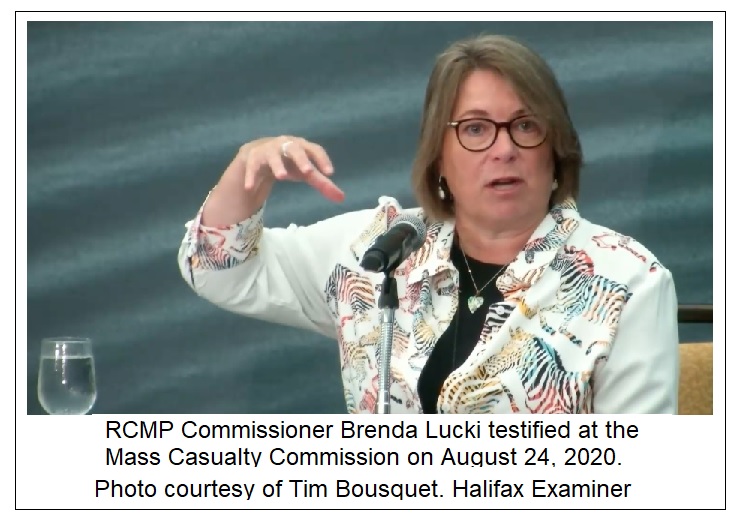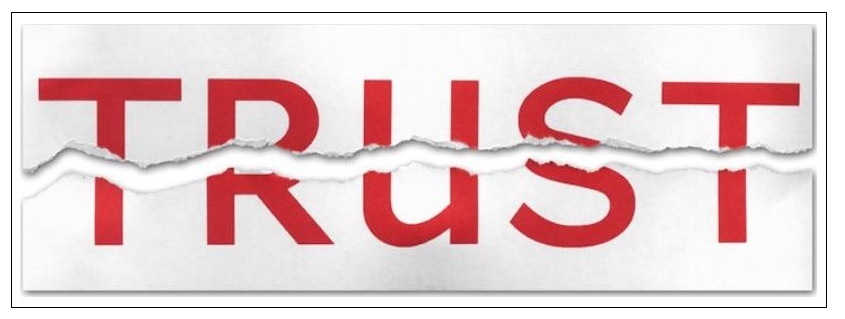True and Fascinating Canadian History
Honouring the RCMP's Sesquicentennial: 1873 - 2023

The Coroner's Report
And The Murders in Nova Scotia
April 18th and 19th, 2020
RCMP Vets. Ottawa, ON

The RCMP was certified dead. That's right dead. At least that was the opinion of one imaginary coroner who apparently published a fictitious Coroner's Report not so long ago. Naturally, Canadians are now asking if this announcement was true, or was the report fabricated, or was it just one person's overworked imagination? It might be worthwhile to look into the rumours circulating of the RCMP's impending death.
Looking way, way back, organizational theorists often refer to the death of the dinosaur to illustrate how companies have but one option in the corporate world; adapt or die. However, the dinosaur metaphor itself is too old and overused, and one would think that business analysts might use a more up to date example than stretching way back millions and millions of years ago to the Mesozoic Age.
The death of Sears Canada in recent memory is a more appropriate and contemporary example for our purposes. Its wounds were self-inflicted much like the RCMP did to itself, and the failures linked to Sears can be accurately and factually applied to the RCMP. For years, both organizations flew with one wing, and they both failed to pull out of a tail spin in time. In the February, 2022 issue of Indigo Digital & Strategy and Growth, business author Tricia McKinnon identified several factors that lead to the death of Sears, the 2 principle setbacks were; a failure to innovate, and a lack of focus. The coroner's report placed the RCMP in precisely the same predicament as Sears, and the failures leading to the death of one certainly applied to the other. The coroner's report cited that the RCMP surely looked dead -- lying alone, cold and motionless in a basement fridge of an Ottawa City morgue. Now, all that's left to do is to print and publish an obituary. To keep the death notice brief, an editor must be mindful to avoid plagiarism, but then simply cut and paste the obituary for Sears and change the title to read RCMP.

One can study the failures of Sears Canada and apply them to the RCMP. First, the RCMP's failure to innovate. According to witnesses, the failure of the RCMP to employ the Emergency Alert Ready System in Nova Scotia resulted in the loss of life, and as a consequence this particular failure received far more attention than almost any other topic facing the Mass Casualty Commission (MCC) hearings in Halifax, NS up to that date. In the opinion of Canadians and some police agencies too, it was incomprehensible how the RCMP could allow this failure to happen. In April, 2020, nearly every Nova Scotian with a cell phone thought about Alert Ready except for the RCMP. It was an oversight that contributed to the loss of life in Nova Scotia, jaws dropped across Canada, and the failure to use Alert Ready gave Nova Scotians cause not to trust the RCMP to protect them.
In their article titled, What kept RCMP from using the emergency alert system in Nova Scotia, journalists Terry Flynn and Joshua Greenberg revealed that Alert Ready was available to the public and extensively covered in the press years ago, but the RCMP totally missed its utility and its publicity first announced by the Public Safety Minister. Flynn and Greenbery wrote, "On April 6, 2018, Ralph Goodale, then federal Public Safety Minister, introduced Alert Ready, a smartphone-based national public alerting system that would be used to support federal, provincial, territorial and municipal emergency notification and response. “By adding smartphones to our emergency alert system,” he said, “we will be able to reach more Canadians, faster, in times of crisis."

During the murders, the RCMP resorted to Twitter to warn the public of danger because it was the most familiar media to the on-duty Incident Command Team. After the murders, it seemed to Canadians that the RCMP over-claimed the merits of Twitter, however, witnesses testified that Twitter had limitations; not everyone was receptive or familiar with Twitter, and Twitter was never designed or intended for emergencies. But, Alert Ready was an immediate, loud sounding and serious warning. It was tailor made for such an emergency, and the vigourous employment of Alert Ready on cell phones would have reached far more people. Frustrated and angry Nova Scotians questioned why the RCMP did not employ Alert Ready which would have saved lives, and it mystified everyone how the RCMP saw any merit in Twitter, as compared to Alert Ready, its immediate impact province wide and its utility to warn everyone in Nova Scotia who carried a cell phone.
It was difficult for the RCMP to find excuses for not employing Alert Ready. After the murders, Mr Chuck Porter, Minister responsible for Nova Scotia's Emergency Managment Office told journalists Flynn and Greenberg about the critical role that the Emergency Alert System has played in Nova Scotia. Porter said, "Government and public safety officials have a responsibility to alert the public when they face imminent risk to their health and safety." (Flynn & Greenberg: 2022). The reasons for the RCMP not to employ Alert Ready left Canadians scratching their head and annoyed.

The inability of RCMP senior Officers to innovate with Alert Ready reinforced serious deficiencies within the RCMP; Senior Officers in an operational setting were not sufficiently engaged in modern communication methods including life saving technology, and Alert Ready was just one example. Frequent, timely and professional press interviews on TV and radio by senior Officers were another huge deficiency.
Commissioner Brenda Lucki's testimony in August, 2022 before the MCC in Halifax was embarrassing. Seemingly, Commissioner Lucki is the most senior of all police officers in Canada, and at the same time she is the top expert in Canadian law enforcement. But, she was unable and unprepared to propose a single innovative suggestion for the Mass Casualty Commission who was waiting to hear her say something substantive. Prior to her appearance as an expert witness, she could have conducted a short telephone survey among her own Officers, or she might have asked for innovative ideas from the Canadian Association of Chiefs of Police. There was no lack of policing experts across Canada or the United States whom she could have consulted and who would have given her new and innovative ideas to present to the MCC. But sadly, that didn't happen.

Off the top of her head, she might have said, for instance, that all the police cruisers in Nova Scotia will soon have unique identification numbers painted on their roofs so that pilots in the air can distinguish one cruiser from another. She might have proposed that constables on duty the night of the murders should have quickly modified the outside appearance of their cruisers so that the killer's cruiser would have stood out very differently, and that it would have been more easily identified on the highways.
Commissioner Lucki should have been better prepared to answer several questions related to policing posed by legal counsel at the MCC hearings. On TV, she looked in emotional pain. She repeated, "I don't know" and "Yea' too often which demonstrated a certain degree of unprofessionalism when speaking in a formal setting. And most of all, as the RCMP Commissioner, she was supposed to have been an experienced police witness, but that did not appear to be the case on TV. She should never have allowed her frustration to become apparent on the stand in spite of the families legal counsel's persistent questioning. If one is telling the truth, one repeats the truth, over and over and over again until legal counsel moves on. Her response at a time of frustration about answering questions seven ways to Sunday was out of character for an experienced police witness especially at her level, it was not necessary and it showed a lack of self containment and professionalism.

The Commissioner should have expected that questions about firearms would be raised, and so she should have prepared herself to answer questions competently in that specific domain. Sadly, Assistant Commissioner Lee Bergerman was the Commanding Officer of Nova Scotia at the time of the murders. She was supposed to be a highly educated and informed expert in provincial policing, but she too failed miserably as a witness before the MCC. It mystified TV viewers that she could not come up with a single innovative idea to improve policing in Nova Scotia except she repeated how the RCMP required more resources.
On another front, the RCMP operates a National Operational Centre (NOC) in Ottawa, but its purpose and role is questionable? It appeared that NOC was not monitoring critical happenings across Canada in April, 2020, and therefore NOC did not suggest the Alert Ready communications strategy to the RCMP in Nova Scotia. But, more than anything else, RCMP Officers resist innovation, fresh ideas and creativity. Primarily due to its history, its semi-military culture and its obstinate nature, the RCMP simply has not adopted a progressive, modern organization mentality. It appears to Canadians that the RCMP is stuck in quicksand, and the conduct of RCMP Officers in Nova Scotia made the failure to use Alert Ready sadly all very, very evident. All the fuss over the RCMP failing to innovate raised suspicion of the RCMP to a new height, and their inability to do the job. As a result, some people now say that the creation of a Nova Scotia Provincial Police Force is not too far away.
Trust in someone is as vital as the absolute need for water by people, plants and animals. The loss of trust by Canadians in the RCMP was the second leading cause of the RCMP's impending death. Sadly, in recent years the RCMP has failed to focus on guarding and maintaining its trust with Canadians, and one can turn to several examples where the RCMP breached that trust. Obviously full blown trust has not been given the priority it rightly deserves by the RCMP's senior leadership team.

We begin here. In March, 2019 or about one year before the murders in Nova Scotia, I experienced two unpleasant conversations with two prominent Canadians who told me they had lost their trust in the RCMP. The conversations were very disconcerting, and of such concern that I wrote to inform Deputy Commissioner Brian Brennan. One day in March, 2019, my wife and I were invited to a private club in Ottawa to raise money for the university. Across the room, I spotted a very influential and well known former Clerk of the Privy Council whom I had seen on TV. Eventually our paths crossed, and we greeted and introduced each other. When I told him my occupation with the Force, he curtly said, "I don't trust the RCMP," and he quickly walked away. He had no time for me, and his conduct made it clear that he did not want any association with the RCMP.
Not long afterwards, I met another long time friend, a former and now retired Ottawa judge. As we were shaking hands, he looked at me and purposely said, "Joe, I don't trust the RCMP." I knew these influential people were not upset with me, but I felt very hurt by what each person said. I knew that I was limited in what I could do to repair the relationship between the RCMP and them, but the incidents made me seriously wonder how many other Canadians had recently lost trust in the RCMP? The answer to that question came soon enough in a survey.
In September, 2022, PostMedia reported that in-house research was recently conducted by the RCMP which said that, "only 35% of Canadians surveyed said they trust the national leadership of Commissioner Brenda Lucki." The results of her leadership were disastrous, but not totally unexpected. PostMedia said, “Tracking suggests that, as with many other issues, trust in the RCMP’s national leaders has eroded somewhat over the past year.” The factors which contributed to the lack of trust in the RCMP were because, "...the RCMP was the subject of a $1.1-billion class-action lawsuit over alleged harassment of members, [and] a public inquiry into RCMP conduct in a Nova Scotia shooting that left 22 dead and enforcing a bank account freeze targeting Freedom Convoy members." It is not known if Commissioner Lucki listens to advice from external sources such as expert media consultants, but if she had, the experts would have given her solid strategies to boost the trust factor by Canadians in the RCMP. For one thing, the RCMP has a reputation of hiding from publicity, and that disadvantage could easily be overcome today by frequent, professional appearances on TV by the Commissioner. The last case of broken trust by Canadians in Commissioner Lucki follows here.

In January, 2022, a stinging decision involving a lack of trust in the RCMP was released by Federal Court Associate Chief Justice Jocelyne Gagne. Essentially, the court said that Commissioner Lucki cannot be trusted to respond in a timely fashion to complaints lodged by the public against the RCMP. In this particular case, the British Columbia Civil Liberties Association lodged a complaint with the RCMP's watchdog the Civilian Review and Complaints Commission (CRCC).
The complaint said, "...the RCMP improperly collected and shared information about people and groups who peacefully opposed the now-defunct Northern Gateway pipeline project and attended National Energy Board meetings." Following the complaint, the CRCC launched an investigation and completed an interim report on the spying allegations in June 2017, and forwarded it to the RCMP for comments. But, the RCMP did not respond. In her ruling, Associate Chief Justice Jocelyne Gagne said, “In my view, a three-and_a-half year delay is certainly not a reasonable interpretation of the ‘as soon as feasible’ in the Act, nor does it mean whenever resources become available.” RCMP Commissioner Brenda Lucki flouted the law by failing to respond promptly to the CRCC's report. The public rebuke by the court did not reflect well on the Commissioner, her lack of leadership nor on her lackadaisical and unprofessional approach to the job, and especially her responsibilities.
On a side issue, totally unrelated to the criticism from the court, Commissioner Lucki revealed in testimony before the MCC that she never visited Nova Scotia or the RCMP members involved in the murder investigation until the funeral of Constable Heidi Stevenson in June, 2021. Her oversight for not flying to Nova Scotia soon after the murders is unforgiving, and she will be long rememebered for not showing any personal concern or compassion in the time of need for the RCMP family in Nova Scotia.
At the top of this piece, it was said that Sears died and its demise lead to rumours floating around that the RCMP was pronounced dead. It was not the case. At this particular time in Canadian history, no one should put too much faith in the landscape disappearance of the RCMP, however, the RCMP should be concerned about what Canadians are telling them, and try their best to improve. The fact is that the RCMP has not kept pace with modern communications techniques which would help them publicize their message immensely, and it has a trust deficit with the Canadian public. Any predictions about the RCMP bured in a graveyard are premature, however, the Mass Casualty Commission will undoubtedly have more to say in 2023 about the future life of the RCMP.

Reporting from Fort Healy,
J. J. Healy
September, 2022
Davenport, Ruth. Former N.S. justice minister says he left RCMP after force refused to adopt Alert Ready CBC News. September 12, 2022 .
Flynn, Terry & Joshua Greenberg. What kept RCMP from using emergency alert system in Nova Scotia? Policy Options. April 28, 2022.
McCallum, John S. Adapt or Die. Ivey Business Journal. November / December. 2001
McKinnon, Tracia. The Downfall of Sears, 5 Reasons Why it’s Struggling to Survive. Indigo Digital. Strategy & Growth. February 28, 2020.
PostMedia News. RCMP survey says only 35% of Canadians trust national leadership. . September 13, 2022.






